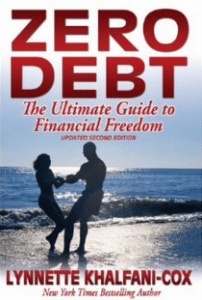If you’re like most adults, you probably want your children, or any youngsters around you, to develop good financial habits. But if you’re like the typical American, you may also struggle when it comes to being a good financial role model for our youth. A study by Northwestern Mutual revealed that 71% of parents feel that children should begin learning about money no later than the 1st grade.
Yet, five in 10 parents say they do not set a good example when it comes to handling money, and that they are not capable of properly teaching their children to manage money. To boost your financial literacy, enroll in an adult education class on personal finances. To educate yourself about investing, join the National Association of Online Investors (www.naoi.org), which has great online study courses. For resources, fun games, tips and ideas for teaching youngsters about money, log onto www.nefe.org or call the National Endowment for Financial Education at 303-741-6333.
The Northwestern Mutual survey found that less than 40% of parents talked about credit cards, loans and debt, and their own family finances with their kids. Fewer than one in four parents (23%) talked to their children about how to invest.
When asked why each topic was not raised for family discussion, most responded, “Children have no business knowing this.” Others said they “didn’t think of it” or that they considered their children too young to broach these issues.
But researchers also suggest another theory. “It is almost certainly lack of confidence with their own financial management skills that keeps parents from discussing some of the more complex, and key, money issues with their children,” says Mark Schug, professor and Director of the University of Wisconsin-Milwaukee Center for Economic Education.
If you are a parent or educator who would like more information and free materials on personal finance education, check out www.themint.org. That web site, jointly run by Northwestern Mutual and the National Council on Economic Education (www.ncee.net), offers practical tips, lesson plans, newsletters and interactive challenges to help teach kids of all ages about money.
Continue reading this post on our free Zero Debt site










